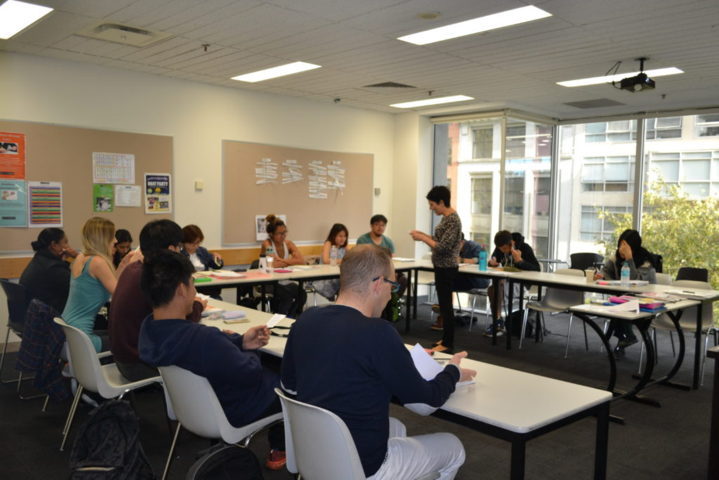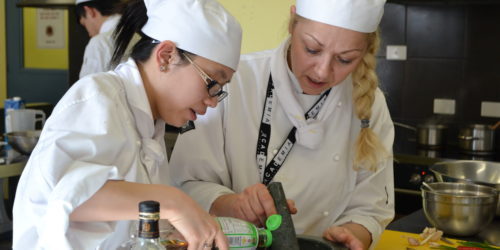3 free study tips that improve recall and retention
Studying can be a very time consuming and stressful activity.
If you’re not doing it well, it can feel like you’ve studied for hours and haven’t been able to retain anything. Or maybe you’ve found yourself reading the same line over and over again and still not understanding what it says (we’ve all been there!)
So, what are some completely free and effective study tips you can start implementing immediately?
Exercise creates more effective study habits than caffeine
A hot cup of coffee is everyone’s go to best friend for a late night study session.
What you might not know, is that the warm coffee cup on your desk is actually the devil in disguise. Caffeine may give you an instant energy high, but your energy levels will hit a downwards spiral that will leave you feeling stressed and overworked.
Our most important study tip is not to drink coffee when you’re feeling tired.
Trying fighting off the heavy eyelids and constant yawning with exercise, instead!
We aren’t telling you to leave your books and study desk behind to go on a 10km run.
Squat your way to a better mood!
No, instead, get up out of your chair and smash some quick-fire exercises, like 30 squats followed by a round of sit-ups and push-ups.
These are really good exercises to add to your study routine because they can be done in a small space and they don’t take long to perform.
In addition to keeping you alert, exercise will release hormones into your body that will put you in a good mood.
Coffee on the other hand releases a wide variety of hormones that aren’t so positive.
You can’t deny that you’re more likely to keep studying and stay focused if you’re in a good mood rather than stressed out and hitting the burn-out period in your caffeine high.
Find a quiet area free from distractions to study effectively
Your study area can greatly contribute to your brain’s ability to both focus and retain information, as well as recall it later.
A well-known, but very effective, study tip is not to study in your bedroom. Your brain associates your bedroom with sleep and relaxation. It is unlikely to perform at its highest capacity if you are trying to study in your room.
(In fact, your bedroom should only be reserved for sleep – that means no eating or watching TV in bed!)
Even more important than not studying inside your bedroom is not to study in your bed. The sensory information your brain receives when you’re in bed is comfort, warmth, and the smell of your sheets.
These all things your brain will associate with turning off and going to sleep. If you continue to study in bed you will change the association your brain has with your bed. It will begin to associate the sensory information it is receiving with concentration, hard work and stress. It will become very difficult for you to sleep in your own bed if this occurs.
So where should you study?
It is important to work in an place that will mimic the environment your brain will be required to recall information in.
For example if you are going to need to remember what you are studying in an exam then you should study in an exam environment: somewhere quiet, away from other people and removed from things that might distract you.
If you are studying for an exam, don’t study in a kitchen where you are likely to be interrupted by people getting dinner, cleaning up or just hanging out.
Try go to a spare room, your parents’ office, or to the local library.
Take breaks while studying
We know it might sound counterintuitive to advise taking breaks while studying, but it’s important to remember that your mind and body sometimes need a moment to rest and recuperate!
Did you know that frequent breaks can actually help boost focus, increase retention, and reduce stress?
Breaks don’t need to be disruptive to your whole day; it could be something simple as watching an episode of your favourite TV show or heading out for a 15-minute brisk walk in the fresh air.
Break mistakes you may be making
- Taking breaks that last more than 30 minutes (a longer break makes it harder to re-focus)
- Not moving during your break – stretch your legs and fuel your mind with physical movement
- Skipping out on food – make sure you have easy access to healthy snacks, and drink water consistently
Studying for long hours without a break tires the mind just as exercising without a break tires muscles.
So give your body (both physically and mentally) the chance to recuperate with frequent study breaks.
Bonus: wearing the same scents may help your body recall information!
When it comes to memory, smell is the strongest sense the human body has in terms of recall.
Your brain is capable of retrieving information from your long term memory based off nothing other than smell.
Psychologists recommend wearing the same perfume, cologne, or deodorant while you study that you will wear when you take a test.
You brain is a vast chasm of information and it will retain knowledge you are not consciously aware of.
How cool is that?!
Enhance your study with Academia today!

Academia is proud to nurture each and every one of our students through their studies.
With a team of qualified trainers leading classes for a variety of courses, Academia is one of Australia’s most distinguished private tertiary learning institutions.
View all our courses at a glance here or get in touch with us if you have any questions about studying at Academia!





